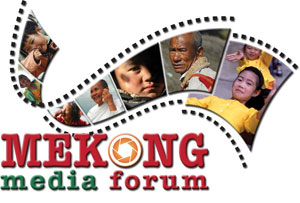By Nguyen Kim Ngan
This question dawned on me when I took a boat along the Mekong River, one of the biggest rivers in Asia that is shared by six countries, namely China, Myanmar, Thailand, Laos, Cambodia, and Vietnam.
Although any point somewhere in the Golden Triangle area can be Lao, Thai or Burmese territory, it sounds strange that none of these governments have taken appropriate care of a river that has a significant role in their economies and cultures. Each country appears to treat the river as if Vietnam has Cuu Long, China its own Lancang, Cambodia has its Tonle Sap. But the haze from Chiang Mai to Luang Prabang, dams by China and Vietnam that cause rice fields in Cambodia to get flooded, river water pollution, drug trafficking, illegally imported and exported products, HIV/AIDS, and poverty are some examples of the challenges that the six Mekong countries share.
The solution might not lie in giving more financial resources or educational improvement, but in asking the question “Who cares for the river?” Among the efforts to seek answers to this are the Imaging Our Mekong annual programme and Mekong Media Forum.
In this forum, I felt that I was in a family whose members were discussing, sharing and having arguments, but all for the benefit for their common family, the Mekong Region. I saw the way Vietnamese journalists care about the situation in Burma, Thai male reporters empathise with female colleagues for the difficulties in their work or a young Cambodian filmmaker frankly sharing his opinions about China to Chinese participants.
Among the sessions that impressed me was the one on ‘Children and Borders’, the gender sessions and ‘Burma 2010′. On children and gender, which are my interests, I heard many new viewpoints and angles. These include cooperation between Vietnamese and Lao young people voluntarily working at the Viet-Lao border or the ‘iron girls’ or glass ceiling concept in China, for instance. Journalists shared with us their problems on gender equality, although the situation is varied among nations.
In the sessions on ‘Burma 2010′ or ‘Shifts in the Media Landscapes’, my understanding has been widened through facts, figures, stories and comments from foreign colleagues. I may not know as much about the Burma situation if I did not take part in the forum. I don’t have any opportunity to meet Burmese former prisoners or exiled journalists who are not able to go back to their own country.
Thanks to the MMF, our big Mekong family can be reunited and share our love for the region. Together with IPS Asia-Pacific and Probe Media Foundation, other international organisations and ourselves, local journalists want to answer the question I started this article with. We are Mekong citizens and we for care our river!







